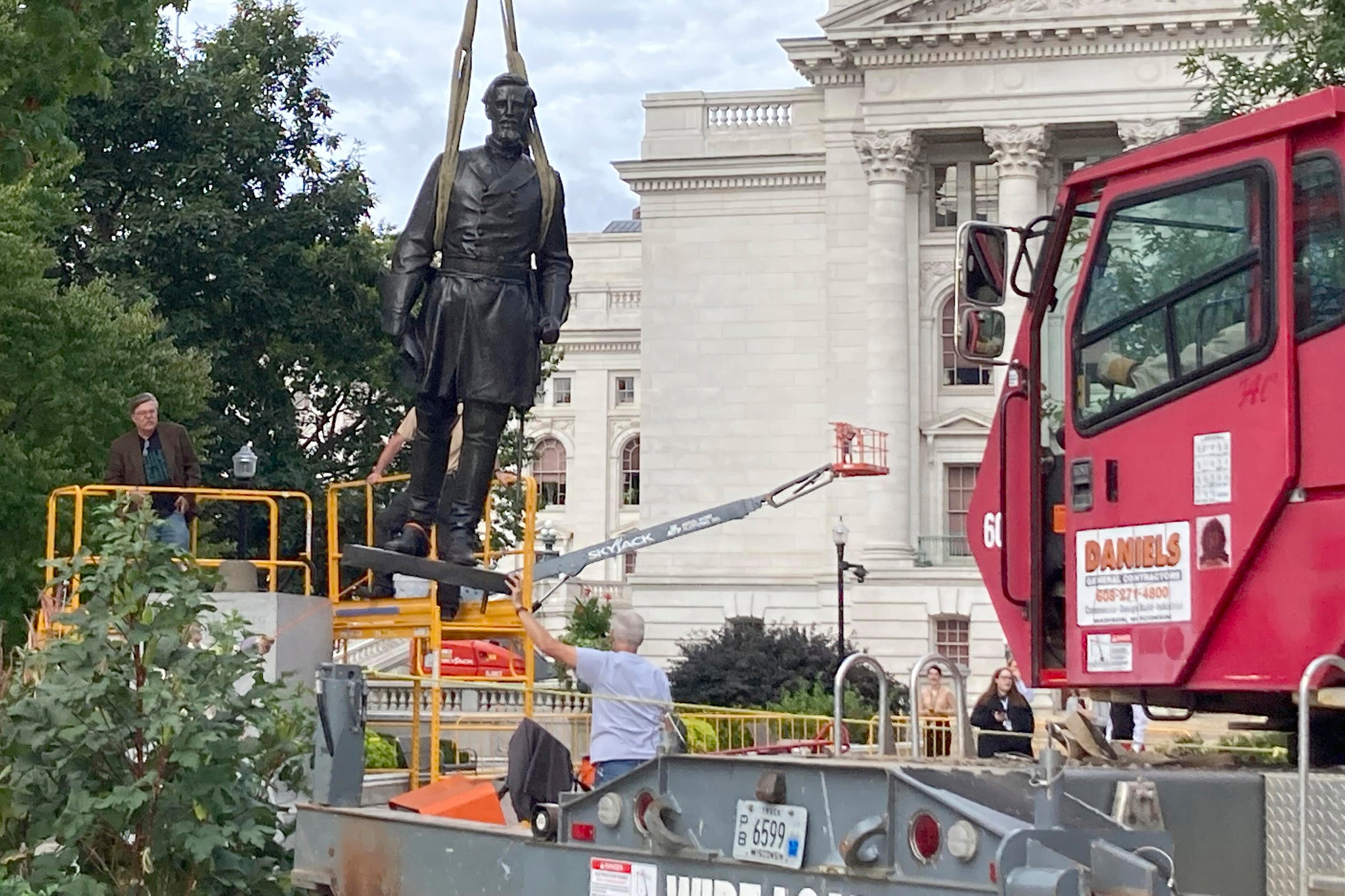The state Senate passed a number of bills on Tuesday, including plans to change regulation of the hemp industry in Wisconsin, alter how sexual assault kits are tracked and stored and implement new measures for combating the spread of Lyme disease in state parks.
The Senate also voted to confirm several members of Gov. Tony Evers’ Cabinet.
Five members of the governor’s Cabinet were confirmed by unanimous voice votes: Department of Administration Secretary Joel Brennan; Corrections Secretary Kevin Carr; Revenue Secretary Peter Barca; Veterans Affairs Secretary Mary Kolar; and Department of Financial Instutitions Secretary Kathy Blumenfeld.
News with a little more humanity
WPR’s “Wisconsin Today” newsletter keeps you connected to the state you love without feeling overwhelmed. No paywall. No agenda. No corporate filter.
A number of notable department heads, including Transportation Secretary Craig Thompson and Health Services Secretary Andrea Palm, have yet to be confirmed. They will continue in their jobs until votes are held.
Changes To Hemp Regulations Approved
Lawmakers voted 31-2 to approve a bill that would re-authorize hemp growing in Wisconsin and make a number of other technical changes to hemp laws in the state.
Wisconsin legalized industrial hemp, which is used to produce a variety of products, from rope to granola bars, in 2017.
But supporters of the measure argue state law must be updated in the wake of Congress’ action in the 2018 Farm Bill. That federal legislation legalized hemp across the country, but also made changes to definitions of the product that make Wisconsin’s law obsolete.
“Hemp is Wisconsin’s comeback crop,” said Sen. Patrick Testin, R-Stevens Point, in a prepared statement after the vote. “This bill works to build confidence at every level of the hemp industry. Farmers, processors, retailers, and customers need to have a reasonable regulatory framework that ensures maximum opportunity and safety.”
The bill has yet to be voted on in the Assembly.
New Requirements For Sexual Assault Kits Move Forward
Two bills changing how Wisconsin processes sexual assault kits, also sometimes called “rape kits,” both passed on unanimous voice votes.
One bill would create procedures for transmission, processing and storage of sexual assault kits.
Under the measure, if a victim wants to report sexual assault to law enforcement, a health care professional must notify law enforcement of a sexual assault kit’s collection within 24 hours. If the victim doesn’t want to report the assault, the collected kit must be sent to the state crime laboratories within 72 hours for storage.
The bill also requires the state crime lab to store kits for 10 years if a victim hasn’t consented to testing. This allows for victims to change their minds and consent to testing at a later date, if they choose.
A second bill would require the state Department of Justice to establish a databank to provide sexual assault victims with access to certain information regarding their sexual assault kits. The bill appropriates $400,000 in each of the next two years for that purpose.
During debate, Sen. Patty Schachtner, D-Somerset, said that bill empowers victims and survivors.
“We need to really support our victims and this helps them track through the justice process,” she said.
Both bills have yet to be voted on in the Assembly.
Lyme Disease Initiatives Move To Assembly
The Senate also approved four bills aimed at combating the spread of Lyme disease in Wisconsin on unanimous voice votes.
The bills would require signs at state parks and trails warning users of Lyme disease and other illnesses, establish a tick-borne disease study committee, make insect repellant available for sale in state parks and state forests and require the state Department of Natural Resources to create a Lyme disease awareness campaign.
Sen. Janet Bewley, D-Mason, said Lyme disease has become major concern for people working in forestry.
“It affects employment, it affects the ability of people to be able to willingly go out into the woods and be able to do their work,” she said.
The legislation hasn’t yet been voted on in the Assembly.
Other Approved Bills
The Senate also approved proposals that would:
Designate the Wisconsin 9/11 Memorial Highway. This bill has yet to be voted on in the Assembly.
Makes changes aimed at expanding the reach of the state’s minority teacher loan program. This bill has already passed the Assembly. It now moves to Evers’ desk.
Require driver education training for semi tractor-trailer drivers on human trafficking. This bill has already passed the Assembly. It now moves to Evers’ desk.
Make bestiality a felony in the state. This bill has yet to be voted on in the Assembly.
Editor’s note: This story was updated with vote outcomes and comments from lawmakers.
Wisconsin Public Radio, © Copyright 2025, Board of Regents of the University of Wisconsin System and Wisconsin Educational Communications Board.







